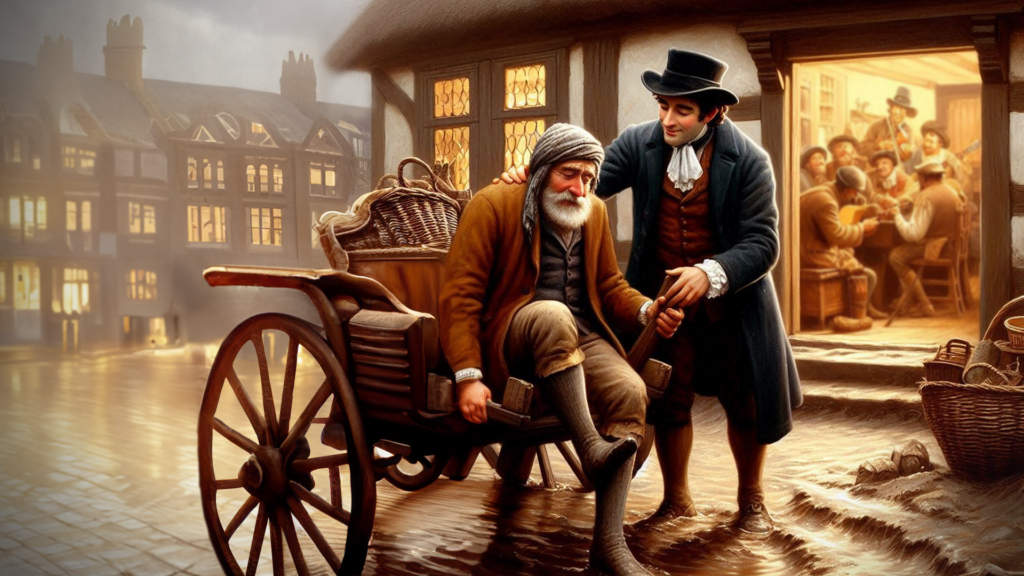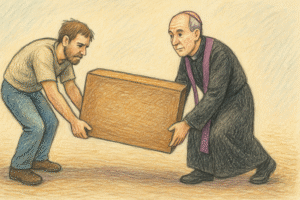It is said that the poet George Herbert (1593-1633) had a group of friends with whom he met once a week to talk, and also to play music. They had a small, amateur orchestra, and they spent some time playing music.
One day on his way to one of his friends’ houses where they were meeting to play music, he came across a cart that was stuck in the mud. George decided to help this poor man who could not get the wagon out of the mud by himself. It was not an easy job for two people either, so it took them a couple of hours to be able to get the wagon out of the mud.
This meant that when George arrived to his friend’s house, they had already finished playing and were saying goodbye to each other. When he saw George, one of his friends said, “George, you’re late, you missed all the music.” George, with a smile of satisfaction for the good deed done, replied, “never mind, I’ll listen to it another day.” He had the satisfaction of having done something according to the Gospel.
When Jesus said that we should do everything in secret in order to be paid by our Father (cf. Mt 6:4.6.18), He did not mean if we do things in secret we will not also be paid here on earth. Jesus says that if we do not seek a certain reward, we will receive the true reward. What is the reward we can seek and what is the one we should not seek?
The reward we should not seek is the vainglory of the world. When we seek to be considered by men, when we seek the applause of the world, when we do things so that others will see us, etc. we will receive that payment which is empty. Using the words of Ecclesiastes we can say that seeking those things is like wanting to catch the wind (cf. Eccles. 4:4). That was precisely the problem of the Pharisees and publicans, who did things, even praying, to show something to others and not for the good of their soul. We should not do things in order to be seen by others, but rather out of charity.
George Herbert did not go against today’s Gospel even though he felt satisfaction for having done a good deed which is something natural. The problem would have been if he had done the good deed to feel that satisfaction and not out of charity towards that poor man who was in trouble. Almsgiving should be done to do good to others, prayer should be done to have a personal relationship with God, fasting should be done to subdue our passions. All of these things give a holy satisfaction which is part of the reward that our Father who sees in secret gives us already in this life, as well as the reward He will give us in heaven.





